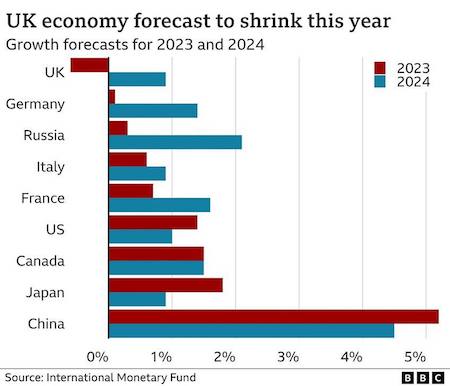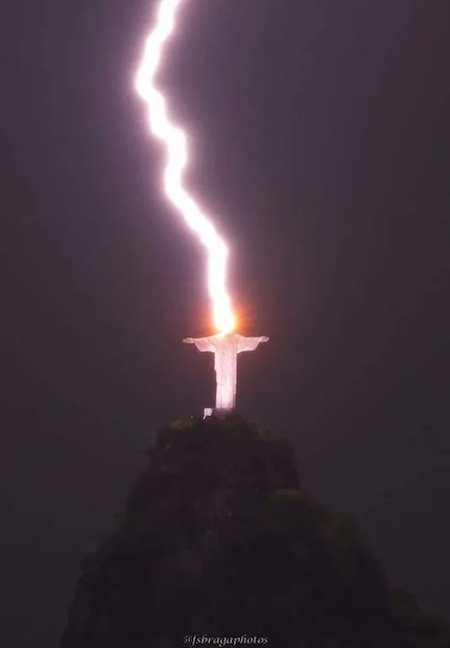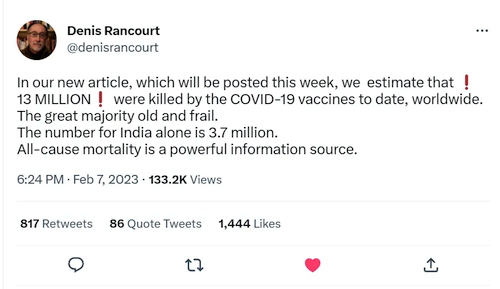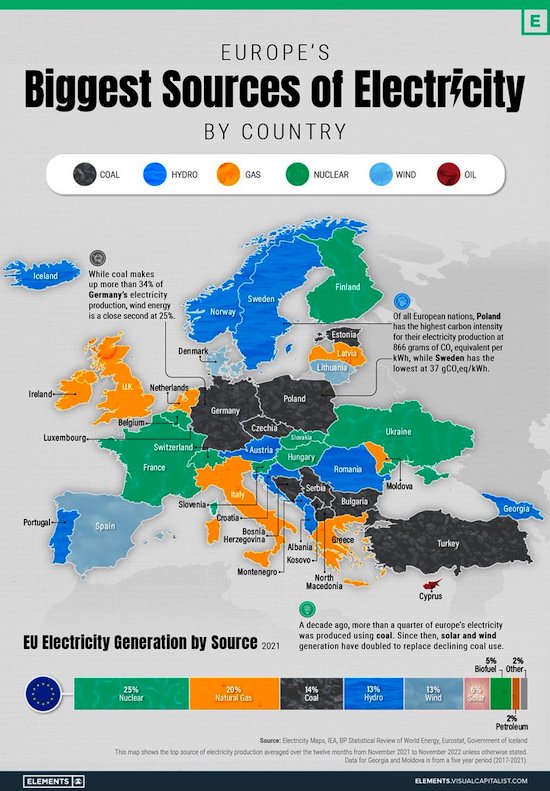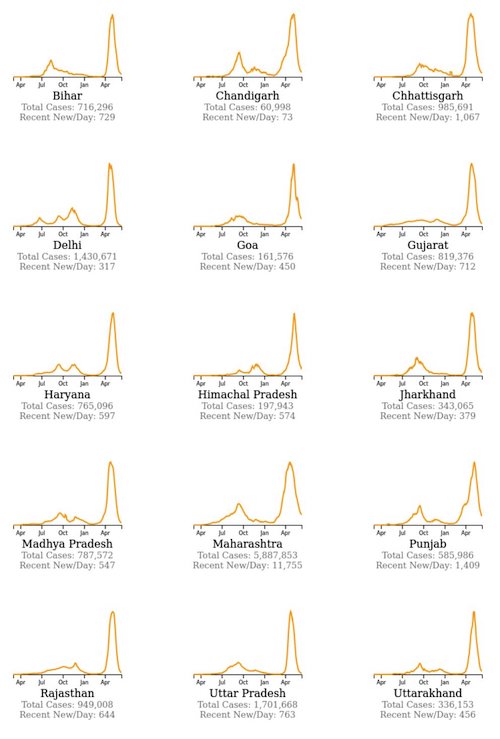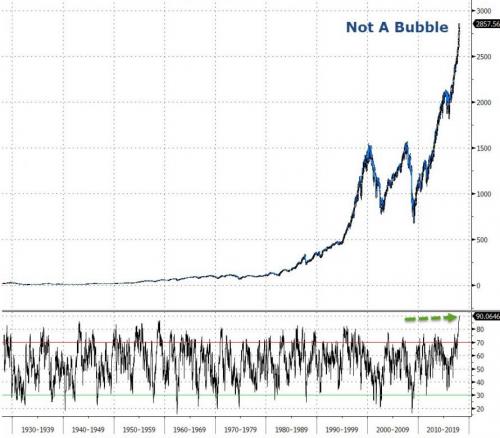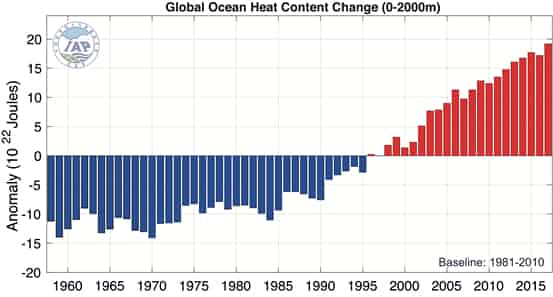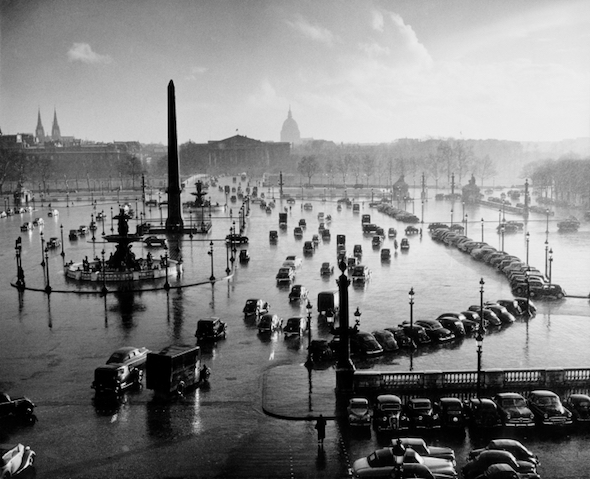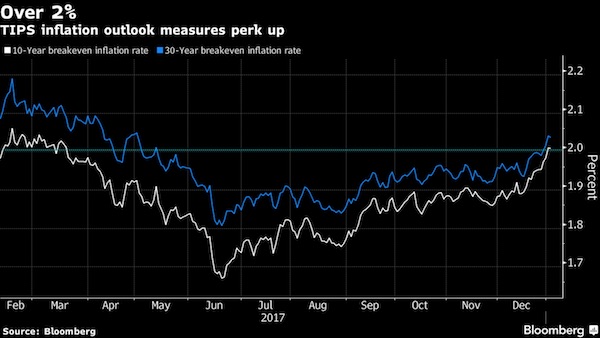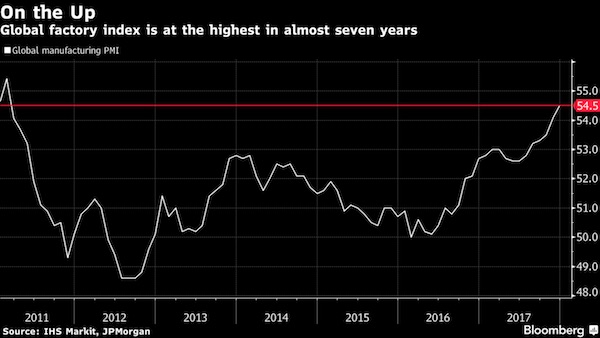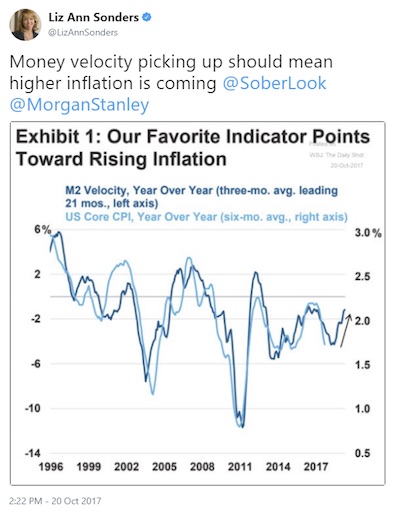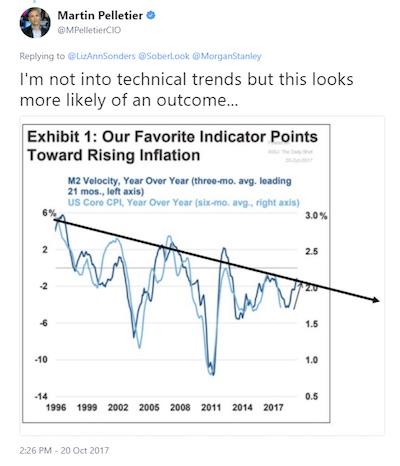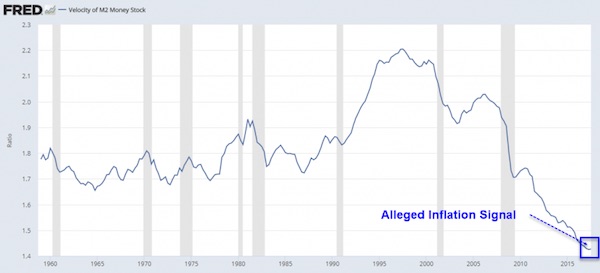
Pablo Picasso The Rooster 1938



Trump SOTU
https://twitter.com/i/status/1765810329265602675

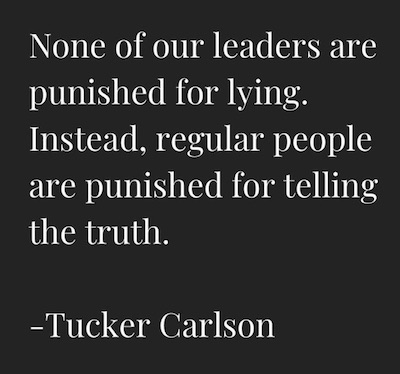

HUMAN TRAFFICKING
https://twitter.com/i/status/1765709918403793160



2029
If Biden wins, can he even survive till 2029? The real question is, can we? pic.twitter.com/2nFZGuC3l1
— MAGA War Room (@MAGAIncWarRoom) March 7, 2024

Voter ID
How is it unconstitutional to require ID to vote but it's okay to ID for literally anything else?
Elon Musk: Biden flying 320K ‘unvetted’ migrants into the US ‘for something far worse than 9/11’
Elon Musk ripped President Joe Biden’s administration for secretly flying 320,000… pic.twitter.com/6IIl7KDvQy— Camus (@newstart_2024) March 7, 2024



Why Dennis Kucinich LEFT RFK Jr.’s Campaign (and much more)


Dark Brandon. Best part of Tucker Carlson is the 2nd half with Alex Jones.
• Biden Delivers The “Darkest, Most Un-American Speech Given By A President” (ZH)
Having successfully raged, ranted, lied, and yelled through the State of The Union, President Biden can go back to his crypt now. Whatever ‘they’ gave Biden, every American man, woman, and the other should be allowed to take it – though it seems the cocktail brings out ‘dark Brandon’?
Biden’s Speech tonight …
• Fund Ukraine.
• Trump is threat to democracy and America itself.
• Abortion is good.
• American Economy is stronger than ever.
• Inflation wasn’t Biden’s fault.
• Illegals are Americans too.
• Republicans are responsible for the border crisis.
• Trump is bad.
• Biden stands with trans-children.
• J6 was the worst insurrection since the Civil War.
(h/t @TCDMS99)Tucker Carlson’s response sums it all up perfectly: “that was possibly the darkest, most un-American speech given by an American president. It wasn’t a speech, it was a rant…” Carlson continued: “The true measure of a nation’s greatness lies within its capacity to control borders, yet Bid refuses to do it.” “In a fair election, Joe Biden cannot win”. And concluded: “There was not a meaningful word for the entire duration about the things that actually matter to people who live here.” Victor Davis Hanson added some excellent color, but this was probably the best line on Biden: “he doesn’t care… he lives in an alternative reality.”
— Tucker Carlson (@TuckerCarlson) March 8, 2024

Victoria Nuland was involved in US politics in Eastern Europe and Russia for well over 30 years. Ukraine was her baby. Now it’s clear it’s not a big success. How desperate was she? Ray McGovern thinks perhaps the White House was afraid she would be “..attempting to contrive a highly escalatory attack on a nuclear power without approval from her superiors in the State Department..”
She goes, so does US Ukraine policy. Not a trifle matter.
• Was Neocon Anti-Russia Hawk Queen Victoria Nuland Forced Out? (Miles)
Mass speculation has emerged after the sudden announcement this week that influential US Under Secretary of State Victoria Nuland would be resigning from her position in the Biden White House. The surprising development came Tuesday amidst a difficult moment for US President Joe Biden. Former President Donald Trump has maintained a steady lead over Biden in opinion polling as questions remain about the octogenarian head of state’s ability to serve a second term. Cracks have also begun to show in Biden’s political coalition as pro-Palestine activists urge a show of defiance against the president’s foreign policy in state primary contests. The problems extend to the personnel of Biden’s Cabinet as a scandal has arisen over Defense Secretary Lloyd Austin’s lack of transparency over health issues.
With the president facing challenges on multiple fronts, why would the White House choose this moment for a staff shakeup? Former US Central Intelligence Agency analyst Ray McGovern speculated the answer may lie in disagreements between Biden administration officials and the notoriously strong-willed Nuland during a discussion on Sputnik’s The Critical Hour program Wednesday. “The CIA would have, the NSA would have those conversations as well,” said McGovern, referring to leaked recordings of discussions between Nuland and German Defense Minister Boris Pistorius that appeared to reveal plans for an imminent attack on Russian soil. The leaks generated significant embarrassment for German officials as attention was drawn to Chancellor Olaf Scholz’s support for the Ukraine proxy conflict.
Nuland’s bellicose rhetoric may suggest she was going rogue, according to McGovern, attempting to contrive a highly escalatory attack on a nuclear power without approval from her superiors in the State Department. “My best guess here is that the CIA and the Defense Department and the NSA got this message around saying, ‘look, Victoria’s got her own agenda here,’” said the analyst. “‘The president doesn’t really want to strike these ammo depots in Russia or knock down the [Crimean] Bridge. So we got to rein her in, I guess it’s time for her to go to early retirement.’”

“..promising her a place in the history books because of the role she has played in the events around Ukraine..”
• Nuland’s Successor Should Scare Zelensky (Dmitry Bavyrin)
US Deputy Secretary of State Victoria Nuland is retiring from the civil service. She was responsible for relations with Russia back in the days of the first Yeltsin government, but all-Russia fame came to her after the distribution of “cookies” on the Maidan. There are serious reasons why Nuland chose retirement, even though she was destined for the Secretary of State’s chair. And the President of Ukraine has reason to be apprehensive of the candidacy of her replacement. Formally, Victoria Nuland was only the fourth [in fact third] in the US diplomatic hierarchy, but in terms of her real influence she is comparable to the Number-1 — Secretary of State Antony Blinken, whose place, according to rumours, she was aiming for. They are close in views, but belonged to different clans, and Nuland loomed over Blinken like a Nemesis: if it was decided to write off all the foreign policy failures of the Biden period and remove Blinken from office, the State Department would certainly go to her.
She is only a year older than Blinken, but as a diplomat she is old enough to be his mother. He is more of an armchair theorist than a practitioner, more of a “hand-me–down” to politicians than a politician, whereas Nuland usually worked “on the front line” – in secure situation rooms around the world, being a career ambassador in both the Russian and American sense of the term. In Russia, this means that the individual entered the diplomatic service not from the outside (for example, as a political appointee), but through specialized education and climbed the ladder of the ranks of the Ministry of Foreign Affairs. And in the United States, this is something like the principal title of honour for diplomats – a sign not only of merit, but also of the highest professional qualifications. Since 1956, only six dozen people have received this honorific, and Nuland is one of the most famous on the list.
She was good at her job; had been responsible for important areas for Washington for decades – NATO, Russia, Ukraine; it was as if she was born someday to become head the State Department, and best of all now, when it is especially fashionable to appoint women. However, President Joe Biden is stubbornly sticking to Blinken, whom he has known for a long time and intimately. He trusts him and he does not want to replace him with stronger and more independent characters like Nuland. Nevertheless, the Secretary of State must have breathed a sigh of relief when he received Nuland’s resignation letter. The fact that Blinken himself announced the departure of his likely rival for the succession seems to indicate his desire to cut off her escape route and the opportunity to change her mind.
Whether this is true or not, he did not skimp on compliments, calling Nuland “exceptional” and promising her a place in the history books because of the role she has played in the events around Ukraine. There may also be a place for that in Russian textbooks, only with different emphasis. Nuland became famous on our side of the Pacific Ocean and the Atlantic when she distributed cookies to Euromaidan protesters on the eve of the [February 21, 2014 Kiev] coup. And this fame was supported by the fact that she continued to oversee the Ukrainian direction and was Washington’s main negotiator with Moscow on all issues arising from this. The beginning of the Special Military Operation is her personal failure. Nuland tried to prevent such a turn of events, but could not maintain the necessary degree of control over the self–willed Ukrainian government. She also allegedly wanted to prevent the resignation of the Commander-in-Chief of the Armed Forces of Ukraine, Valery Zaluzhny, and also failed.
Shortly after that, Nuland ceased to act as Blinken’s Deputy Secretary of State and the Number-2 person in the State Department; she had been formally considered the replacement [for Wendy Sherman] in this position and lasted six months before Kurt Campbell was appointed; now, a month later, she resigns from her “post number four” [three], that is, definitively. It is unlikely that this fall is due to failures. There are many failures in Nuland’s career, primarily because she worked in the most difficult areas. It’s much more like escaping from a sinking ship, when the ship is the Joe Biden administration. It seems unlikely that he will be able to win the presidential election in eight months’ time. In Nuland’s eyes, he may be altogether non-credible now, since she interacts with “old Joe” personally and is more privy to his medical diagnosis than many others. And with the return of Donald Trump to the White House, continuation of her work in the State Department is incompatible, despite her experience and seniority.

“..Nuland’s resignation means the Kiev regime has definitely lost a very influential supporter..”
• Nuland’s Resignation Means Hard Times Ahead for Ukraine (Sp.)
Secretary of State Antony Blinken announced on March 5 that Victoria Nuland, a US official known for her ardent support to the Kiev regime, decided to step down in coming weeks. US career diplomat John R. Bass was picked as her temporary replacement, while the American media believes that Team Biden is likely to tap current US ambassador to NATO Julianne Smith to fill Nuland’s shoes in the near future. “Given what a staunch anti-Putinist Nuland was and how fervently she wanted to continue to utilize Ukraine as a platform in which to continue to weaken and/or slight Russia on the global stage — and perhaps even up the ante in that conflict with her support of sending ballistic missiles into Ukraine,” Dr. Matthew Crosston, professor of national security and director of academic transformation at Bowie State University, told Sputnik.
The academic said it was likely Nuland had become frustrated with the loss of support for her pet project in the US Congress, which has blocked the White House’s request for more than $60 billion in additional military aid to the Kiev regime. “She undoubtedly understood that if American support lessens or wanes, Ukraine loses, period,” Crosston pointed out. “Perhaps she did not want to be in the Administration that would be responsible for that outcome.” Nuland’s decision to step down was a surprise, as CIA veteran Larry Johnson told Sputnik this week. Her temporary replacement, John R. Bass, is little-known internationally. The US career diplomat served as an American ambassador in post-war Georgia and during a botched coup in Turkiye. In both countries he came under heavy criticism for meddling in those nations’ domestic affairs. Bass was also a hot-swap replacement for then acting Ambassador in Afghanistan during Team Biden’s botched withdrawal from the region in August 2021. Now he is expected to oversee the Ukraine crisis.
“Everyone seems to be emphasizing his ‘acting’ role, which in America always implies a temporary status where he will eventually be replaced by someone else more permanently,” stressed Crosston. “So I am not entirely sure that Bass is going to be the holder of any great responsibility in terms of formulating new policy in the role.” In light his role in the chaotic and bloody evacuation of Kabul, Bass’ new assignment is a hint that the US was about to abandon Ukraine as well. “It creates some new speculation beyond the standard ‘send more weapons to Ukraine. mantra that has existed so intensely for the last year,” the professor argued. While Crosston did not think Bass’ appointment automatically means that US is going to throw Ukraine down the drain, but Nuland’s resignation means the Kiev regime has definitely lost a very influential supporter. “One thing is certain: as long as Nuland remained in that chair, there was literally no chance such talk could even be theorized. Now it can,” the professor said.

“..the reason for Nuland’s exit is either that she was forced out, principally by the Joint Chiefs of Staff before she could do more damage to US military assets in Europe; or that she decided not to be in office when the Articles of Capitulation are signed between Kiev, Lvov, and Moscow.”
• Nothing In Nuland’s Life Became Her Like The Leaving Of It (Helmer)
As enemies go, Victoria Nuland (lead image), the Under Secretary of State for Political Affairs, was as threatening for Russia as the Thane of Cawdor was for Scotland and Macbeth in Shakespeare’s play about multiple homicide to capture state power. Cawdor repented for his treason in the moment before he died on the scaffold. His execution then allowed Macbeth to take Cawdor’s title and assets for himself, then move on to murder the Scottish king, and replace him until Macbeth was killed himself. The murdering Nuland has committed was foretold by many more sources than the three witches in Shakespeare’s plot. But if Nuland has witchly premonitions, she lacks Macbeth’s and Lady Macbeth’s sleepwalking guilt. In Nuland’s case, it is plain that as her murdering has accelerated, she has been gorging herself with food. In the play Lady Macbeth succumbed and then killed herself offstage. Nuland has just left the stage one hundred pounds heavier than when she entered it.
Not auspicious, according to the Heart Foundation. The script of Nuland’s exit is also not Shakespearian in quality. There is not a single Washington journalist or analyst whose job it has been for years to follow the scheming inside the State Department to report what those in a position to know believe is the reason for Nuland’s hasty “resignation”, as it is being called by the Washington Post, the New York Times, and the Secretary of State, Antony Blinken. His public obituary started with the idea that he had been taken by surprise when Nuland “has let me know that she intends to step down in the coming weeks”; it ended with the immediate naming of Nuland’s replacement, and her tombstone inscribed with “the lasting mark she’s made on this institution and the world.”
For the haste of her exit; for its timing late in the US presidential election campaign and as the Ukrainian military collapses, no one in a position to know believes Nuland’s reasons as they have been leaked by reporters close to her – that her ambition had been offended by her failure to be promoted from Number-3 to Number-2 at State; that her feminism was violated by the non-promotion; and that her Russia warmaking had been subordinated by the higher priority of the White House to fight China. Nor is her departure a case of avoiding blame for the failure of US policy in the Ukraine and in Europe, as the Russian Foreign Ministry spokesman, Maria Zakharova, declared yesterday. Nuland is responsible for “the fiasco of American foreign policy”, Zakharova said. “The bet was a huge one. Everything was staked by the liberal Democrats starting with Barack Obama. That bet has now been lost. An absolute fiasco — the rush by V.A. Zelensky begging for at least something more — the White House rejecting his requests — discord everywhere in NATO… No one has a clear idea what to do…A complete fiasco.”
Zakharova didn’t claim that the US and NATO leaders, their military staffs, and political advisors lack clarity on what they don’t want to risk – that’s to continue the war which Nuland has been promoting, and to escalate it with new weapons on the Ukrainian battlefield, and by attacks deep into Russia itself with nuclear-capable missiles like the German Taurus and US F-16s. If that is what the Russians think is happening and if they are correct – re-read the double negative — then the reason for Nuland’s exit is either that she was forced out, principally by the Joint Chiefs of Staff before she could do more damage to US military assets in Europe; or that she decided not to be in office when the Articles of Capitulation are signed between Kiev, Lvov, and Moscow.

“..defeat in Ukraine, genocide in Palestine. The first is humiliating, the other shameful..”
• The West’s Reckoning? (Michael Brenner)
Western leaders are experiencing two stunning events: defeat in Ukraine, genocide in Palestine. The first is humiliating, the other shameful. Yet, they feel no humiliation or shame. Their actions show vividly that those sentiments are alien to them – unable to penetrate the entrenched barriers of dogma, arrogance and deep-seated insecurities. The last are personal as well as political. Therein lies a puzzle. For, as a consequence, the West has set itself on a path of collective suicide. Moral suicide in Gaza; diplomatic suicide – the foundations laid in Europe, the Middle East and across Eurasia; economic suicide – the dollar-based global financial system jeopardized, Europe deindustrializing. It is not a pretty picture. Astoundingly, this self-destruction is occurring in the absence of any major trauma – external or internal. Therein lies another, related puzzle.
Some clues for these abnormalities are provided by their most recent responses as deteriorating conditions tighten the vise – on emotions, on prevailing policies, on domestic political worries, on ginger egos. Those responses fall under the category of panic behavior. Deep down, they are scared, fearful and agitated. Biden et al in Washington, Macron, Schulz, Sunak, Stoltenberg, von der Leyen. They lack the courage of their stated convictions or the courage to face reality squarely. The blunt truth is that they have contrived to get themselves, and their countries, in a quandary from which there is no escape conforming to their current self-defined interests and emotional engagement. Hence, we observe an array of reactions that are feckless, grotesque and dangerous.
Exhibit 1 is French President Emmanuel Macon’s proposed plan to station military personnel from NATO members within Ukraine to serve as a tripwire. Arrayed as a cordon around Kharkov, Odessa and Kiev they are meant to deter advancing Russian forces from moving on those cities for fear of killing Western soldiers – thereby risking a direct confrontation with the Alliance. It is a highly dubious idea that defies logic and experience while tempting fate. France long has deployed members of its armed forces in Ukraine where they programed and operated sophisticated equipment – in particular, the SCALP cruise missiles. Scores were killed by a Russian retaliatory strike a few months ago that destroyed their residence. Paris cried ‘holy murder’ for Moscow’s unsporting conduct in shooting back at those attacking them. It was retaliation for the French participation in the deadly bombing of the Russian city of Belgorod. Why then should we expect that the Kremlin would abandon a costly campaign involving what they see as vital national interests if uniformed Western troops were deployed in a picket line around cities? Would they be intimated into passivity by spiffy uniforms assembled under outsized banners inscribed with the slogan: “DON’T MESS WITH NATO”?
Moreover, there already are thousands of Westerners bolstering the Ukrainian armed forces. Roughly 4 – 5,000 Americans have been performing critical operational functions from the outset. The presence of a majority predates by several years the onset of hostilities 2 years ago. That contingent was augmented by a supplementary group of 1,700 last summer which was as a corps of logistic experts advertised as mandated to seek out and eradicate corruption in the black-marketing of pilfered supplies. The Pentagon people are sown thought the Ukrainian military from headquarters planning units, to advisers in the field, to technicians and Special Forces. It is widely understood that Americans have operated the sophisticated HIMARS long-range artillery and the Patriot air defense batteries. This last means that members of the U.S. military have been aiming – perhaps pulling the trigger on – weapons that kill Russians. In addition, the CIA has established a massive, multipurpose system able to conduct a wide range of Intelligence and operational activities- independently as well as in conjunction with the Ukrainian FSB. That includes tactical Intelligence on a day-by-day basis. We don’t know whether they had a role in the campaign of targeted assassinations inside Russia.

“..the “desire for independence and protection of one’s sovereignty still breaks through to the surface. This is inevitable for the whole of Europe..”
• US Couldn’t Handle Being The Sole Superpower – Putin (RT)
The United States was unable to manage the responsibility of being the world’s only superpower after the Cold War ended, Russian President Vladimir Putin said at the World Youth Festival (WYF) on Wednesday. The WYF runs in Sochi from March 1-7, hosting some 20,000 young people from Russia and abroad for sporting and cultural events, competitions and panel discussions. Addressing participants at the festival, Putin noted that after the collapse of the Soviet Union in 1991, the US elite had an opportunity to take advantage of their new “monopoly on world leadership.” “I believe that the United States has failed to handle the burden of responsibility that fell on its shoulders. The president predicted that as the multipolar world develops, “fundamental changes will also occur in Europe.” Despite the current hierarchy in the Western world, the “desire for independence and protection of one’s sovereignty still breaks through to the surface. This is inevitable for the whole of Europe,” the president noted.
The expansion of the BRICS alliance has been viewed by many economists as marking the end of undisputed US hegemony in the international arena. “The growing appetite for an alternative to the prevailing international order is important in itself — and marks a failure of US leadership,” business and finance news outlet Bloomberg wrote last year. The combined GDP of the BRICS countries has already overtaken that of the G7, and will grow further, Putin predicted. BRICS, which previously comprised Brazil, Russia, India, China and South Africa, grew in size this January with the inclusion of Saudi Arabia, Iran, Ethiopia, Egypt and the United Arab Emirates. In the past year, the members of the grouping have moved away from using the dollar and euro in internal settlements, instead shifting towards the use of national currencies. Western sanctions related to the Russia-Ukraine conflict have forced Moscow to move away from Western currencies and the SWIFT system and to further develop its own MIR system of payments.

As telegraphed weeks ago…
• Ukraine Sends Fired Top General Zaluzhny To London (RT)
Former Ukrainian commander-in-chief Valery Zaluzhny has been appointed the country’s new ambassador to the UK, the Foreign Ministry announced on Thursday. The ministry said it has already informed London about the development, formally requesting approval from it. “The President of Ukraine approved the candidacy of Valery Zaluzhny for the post of Ambassador extraordinary and plenipotentiary of Ukraine to the United Kingdom,” the ministry said in a short statement. Zelensky himself further elaborated on the matter in a video address, insisting the appointment would only benefit relations between Kiev and London and that their ties “should only get stronger.” “Zaluzhny told me that this is the direction he would like to take – diplomacy,” the president claimed. Zaluzhny ended up being fired by Zelensky from his post as the country’s top general last month, with the Ukrainian president citing the need to bring “new approaches” and “new strategies” to the conflict with Russia.
The commander was replaced by General Aleksandr Syrsky, the head of the Ukrainian Ground Forces at the time. The pick has been widely seen as an unpopular one amongst the military, largely thanks to the questionable reputation of Syrsky, said to be nicknamed “The Butcher” over the commanding style he showed while leading the troops during both the defense of Artyomovsk (known in Ukraine as Bakhmut) and the subsequent attempt to retake the city as part of the 2023 summer offensive. Both battles have resulted in decisive defeats for Kiev, coupled with massive casualties among the troops. The firing of Zaluzhny came after a conflict between the commander-in-chief and Zelensky that had been rumored for months. The two had been reportedly disagreeing over military priorities, while Zelensky had also allegedly grown wary of the popular general, regarding him as a potential political opponent.

The logic: Ukraine will pay it all back. “Cameron excuses his proposal on the basis that Ukraine will win the war against Russia, and that Moscow will have to pay reparations to Kiev..”
• Cameron Wants to Steal Russian Assets as ‘Surety’ to Bail Out Ukraine (Sp.)
Some $300 billion in Russian assets were trapped abroad in 2022 following the escalation of the US proxy war in Ukraine. Under pressure from Kiev, there have been continued attempts by the West to seize those assets and give them to Ukraine. Britain is prepared to loan Ukraine all frozen Russian central bank assets in the United Kingdom on the belief that it will pay those loans back with Russian “reparations” following the end of the war, says UK foreign secretary David Cameron. Western countries have previously pledged a total of several billion dollars toward rebuilding Ukraine, including investment pledges from dozens of major multinational corporations. And in late January, Belgium announced it would allocate €611 million ($663 million) to help Kiev in 2024 using the profits they received from the frozen Russian assets.
But Cameron’s announcement this week is the most extreme proposal thus far, as the previous proposals only discussed giving Ukraine the “windfall profits” from the frozen assets which are estimated to be about $4 billion. “There is an opportunity to use something like a syndicated loan or a bond that effectively uses the frozen Russian assets as a surety to give that money to the Ukrainians knowing that we will recoup it when reparations are paid by Russia. That may be a better way of doing it. We are aiming for the maximum amount of G7 and EU unity on this but if we cannot get it I think we will have to move ahead with allies that want to take this action,” said Cameron on Tuesday, most likely referring to the United States. US Treasury Secretary Janet Yellen has also proposed finding a “way to unlock” the assets to support Ukraine. “I believe there is a strong international law, economic and moral case for moving forward. This would be a decisive response to Russia’s unprecedented threat to global stability,” Yellen said at a meeting of G20 finance ministers last month.
The G7 itself has questioned whether seizing the assets could undermine faith in the international financial system. And Belgium, which is believed to control as much as €190 billion ($208 billion) of the assets, is the most resistant to follow Cameron’s plan. It is reportedly facing a series of court cases in Russia, and its stance on the issue has the backing of both France and Germany. Cameron excuses his proposal on the basis that Ukraine will win the war against Russia, and that Moscow will have to pay reparations to Kiev. But the idea that Ukraine could win a military victory against Russia is unimaginable. More and more Western media outlets have been acknowledging Russia’s success on the battlefield. Moscow has maintained that any attempt to confiscate its frozen assets would violate international law, with the Russian Foreign Ministry labeling such an action as theft.
“Those who are trying to initiate this, and those who will implement it, must understand that Russia will never leave those who did this alone. And it will constantly exercise its right to a legal battle, internationally, nationally or otherwise. And this, of course, will have — both Europeans and Americans understand this very well — it will have legal consequences for those who initiated and implemented it,” Kremlin spokesman Dmitry Peskov said in December. Russian Finance Minister Anton Siluanov has also said that Moscow is willing to issue a “symmetrical” response to this form of Western financial aggression. “We have no fewer frozen [assets than Western countries],” Siluanov said in an interview with Sputnik last month. “Any actions taken against our assets would receive a symmetrical response.

Did they bother to ask the people?
• What Repercussions Could Reintroduction of Conscription in Germany Bring? (Sp.)
German Defense Minister Boris Pistorius plans to speed up the process of reintroducing compulsory military service in his country, the Spiegel magazine has reported. He gave the Defense Ministry until April 1 to present options for a German military service model that makes a major contribution to “national resilience.” The move is “a clear sign of the rearmament taking place in Europe,” Mikael Valtersson, a former officer of Swedish Armed Forces/Air Defense, former defense politician and chief of staff with the Sweden Democrats, said in an interview with Sputnik. Such a process “might result in a new arms race and increased confrontations in Europe,” Valtersson warned. In an apparent nod to Germany, he said that “With conscription, the entire society becomes much more militarized, since a large part of the population have military experience.”
The ex-defense politician recalled that, “The resistance against conscription [in Germany] has decreased during the last years, partly as a result of the conflict in Ukraine and the following heightened tension between the West and Russia.” “But also to a large degree due to an intense campaign from Western media and politicians trying to scare the population with the threat from Russia. A large part of the population still remains skeptical of conscription,” Valtersson added. At the same time, he argued that, “With a bigger military, Germany will of course get a larger influence in European security and politics.” According to the former Swedish officer, “German capacity to replace the US as the main conventional defender in Europe will also increase with a military partially based on conscription.”
Touching upon Russian-German ties, he said that “conscription in itself” would not affect them, “but in combination with general rearmament and a very militaristic language from German media and politicians it will worsen relations.” He was echoed by Stefan Keuter, a German politician for the Alternative for Germany party and a member of the Bundestag since 2017, who told Sputnik that the country “has already a regular army, the Bundeswehr”, which is “integrated into the Western defense alliance.” If strengthened, the European “axis of the alliance” could reduce dependence on the Americans, Keuter noted. It remains unclear “how things will develop in Washington and a high level of defense preparedness cannot be a disadvantage,” he added, apparently referring to former US President Donald Trump’s previous remarks about his unwillingness to defend NATO countries that don’t meet spending guidelines.

“..in sharp contrast to the artificial, cancel culture-obsessed “open society” P.R. incessantly sold by the usual hegemonic foundations..”
• Global South Youth Flocks to ‘Isolated’ Russia (Pepe Escobar)
By any metric, the World Youth Festival running in the Sirius federal territory (Sochi, southern Russia) on March 1-7 is a stunning achievement: a sort of Special Cultural Operation (SCO) encompassing the young Global South. It starts with the incomparable setting – the 2014 Olympics park of science and art, nested between snowy mountains and the Black Sea – all the way to the stars of the show: over 20,000 young leaders from over 180 nations, Russians and mostly Asians, Africans and Latin Americans, as well as assorted dissidents from the sanctions-obsessed Western “garden”. Among them are scores of educators, PhDs, public sector or culture activists, charity volunteers, athletes, young entrepreneurs, scientists, citizen journalists, as well as teenagers from 14 to 17, for the first time the focus of a special program, “Together into the Future”. These are the generations that will be building our common future.
President Putin is once again quite sharp: he emphasized how a clear distinction applies between citizens of the world – including the Global North – and the intolerant, extremely aggressive Western plutocracy. Russia, a multinational, multicultural civilization-state, by principle welcomes all citizens of the world. The World Youth Festival 2024, taking place seven years after the last one, renews a tradition that harks back to the 1957 World Festival of Youth and Students when the USSR welcomed everyone on both sides of the Iron Curtain during the Cold War. The idea of an open platform for young, committed, very organized people attracted by Russian conservative/family values permeates the whole festival – in sharp contrast to the artificial, cancel culture-obsessed “open society” P.R. incessantly sold by the usual hegemonic foundations.
Each day at the festival is dedicated to a main theme. For instance, March 2 was on “responsibility for the fate of the world”; March 3 was for “unity and cooperation among nations”; March 4 was for “a world of opportunities for everyone”. No less than 300,000 youngsters from around the world applied to come to the festival. So obviously to select a little over 20,000 was quite a feat. After the festival, 2,000 foreign participants will travel to 30 Russian cities for cultural exchange. Exactly what comrade Xi Jinping defines as “people to people’s exchanges” It’s no wonder the festival organizers, Rosmolodezh, the Russian federal agency for youth affairs, call it “the largest youth event in the world”. Director Ksenia Razuvaeva noted, “we are destroying the myth that Russia is isolated.”

“The threat was so great that Trump had to be moved into the bunker because the Secret Service feared a breach of security around the White House..”
• NYT Faces Claims of Hypocrisy Over Coverage of the Deployment of Troops (Turley)
Sen. Tom Cotton, R-Ark., has a right to be a tad confused. The senator noted the matter-of-fact coverage by The New York Times that Democratic New York Gov. Kathy Hochul’s plans to send troops to New York City to crack down on crime. Cotton posted a “hmmm” note that simply read: “Sending in the troops to help restore law and order…” His point was that it was roughly four year ago, that the newspaper publicly denounced him after running his opinion piece calling for the use of national guard troops to quell violent riots in Washington. The Cotton column led to editors being forced out after public confessions and recriminations. Now, after Democratic politicians actually ordered such a deployment, the Times has offered little more than a journalistic shrug. Hochul announced she will be deploying 750 members of the National Guard to New York City’s subway system to assist the New York Police Department (NYPD) in the crackdown on crime, including bag searches at the entrances of busy train stations.
I have previously written on the hypocrisy of the Times in how it has handled the Cotton affair. The column itself was historically accurate. Indeed, critics never explained what was historically false (or outside the range of permissible interpretation) in the column. Moreover, writers Taylor Lorenz, Caity Weaver, Sheera Frankel, Jacey Fortin, and others said that such columns put black reporters in danger and condemned publishing Cotton’s viewpoint. In a breathtaking surrender, the newspaper apologized and not only promised an investigation in how such an opposing view could find itself on its pages but promised to reduce the number of editorials in the future: “We’ve examined the piece and the process leading up to its publication. This review made clear that a rushed editorial process led to the publication of an Op-Ed that did not meet our standards. As a result, we’re planning to examine both short term and long term changes, to include expanding our fact-checking operation and reduction the number of op-eds we publish.”
The sacking of Bennet had its intended effect. Writers and columnists with opposing or critical views were soon forced off newspapers around the country, including at the New York Times. Editor Adam Rubenstein was also forced out at the paper and recently wrote a scathing account of the bizarre environment within the paper. The writers have condemned the “both sideism” of allowing conservative viewpoints in the newspaper and insisted that Cotton and others must be banned as favoring potential violent actions against protesters. Yet, the newspaper has published people with anti-free speech and violent viewpoints in the last year. While the New York Times stands by its declaration that Cotton should never have been published, it had no problem in publishing “Beijing’s enforcer” in Hong Kong as Regina Ip mocked freedom protesters who were being beaten and arrested by the government.
Indeed, just before the anniversary of the Cotton controversy, the New York Times published a column by University of Rhode Island professor Erik Loomis, who defended the murder of a conservative protester and said that he saw “nothing wrong” with such acts of violence. Loomis’ article on “Why The Amazon Workers Never Stood A Chance” did not include his earlier violent rationalization. It was in my view a worthy and interesting column for publication. So was Cotton’s column. While many today still claim that the protests around the White House were “entirely peaceful” and there was no “attack on the White House,” that claim is demonstrably false. As I discussed in my testimony to Congress, there was in fact an exceptionally high number of officers were injured over the course of days of protests around the White House. In addition to a reported 150 officers were injured (including at least 49 Park Police officers around the White House), protesters caused extensive property damage including the torching of a historic structure and the attempted arson of St. John’s.
The threat was so great that Trump had to be moved into the bunker because the Secret Service feared a breach of security around the White House. Notably, later during the January 6th riot, there were no recriminations for the use of the same fencing and national guard troops to protect the Capitol, albeit too late to have prevented the initial riot. So now it is a Democratic leader who is not just calling for the use of troops but deploying them in New York City. It is part of an effort by many Democrats to change course on crime and immigration before the 2024 election after years of criminal law reforms and sanctuary city policies.

“According to a 2022 memo issued by Attorney General Merrick Garland, law enforcement officers and prosecutors are prohibited from taking actions that could impact elections.”
• Rep. Gaetz Accuses Jack Smith of Election Interference (ET)
Rep. Matt Gaetz (R-Fla.) accused Special Counsel Jack Smith of election interference in a complaint filed with the Department of Justice’s (DOJ) inspector general on Wednesday. In a letter to Inspector General Michael Horowitz, Mr. Gaetz asserted that Mr. Smith’s resistance to delaying a trial stems from an unspoken drive to hold it before the upcoming November presidential election. Last week, former President Donald Trump’s lawyers and Mr. Smith’s office filed motions requesting different trial dates in the classified documents criminal case in Florida. President Trump’s lawyers have argued that a fair trial cannot be held in an election year when he is the leading Republican candidate. “The witch hunt against President Trump by Attorney General Garland and Special Counsel Smith is a partisan exercise, and the American people know it!” Mr. Gaetz wrote on X (formerly Twitter).
“Jack Smith’s attempt to speed up the trial against President Trump violates the DOJ’s rules and the law,” he continued. “His public comments and his office’s briefs before the Supreme Court demonstrate that he has no reason for his actions other than to unlawfully interfere in the 2024 presidential election.” In his letter, Mr. Gaetz pointed to statements by Mr. Smith in court filings where he has urged a “rapid” review of the case and stressed its “public importance.” This, according to the Florida congressman, shows that the case is an attempt at election interference. “Were there a legitimate, non-election related purpose for this request, these attorneys, who have filed in appeals courts many times, would have listed such,” Mr. Gaetz wrote. “Since charges have been filed and the defendant himself is taking a legal position on timing and lodging various appeals, that justification cannot, for example, be the rights of the defendant under the Constitution or Speedy Trial Act,” he continued.
President Trump’s legal team made a similar argument last month, writing in a court filing that Mr. Smith was twisting “into logical knots” in his argument against delaying the trial. “The Special Counsel’s latest filing raises a compelling inference of a political motive—the motivation to influence the 2024 Presidential election by bringing the leading Republican candidate to trial before November 5, 2024,” President Trump’s lawyers wrote. Mr. Gaetz argued in Wednesday’s letter that Mr. Smith’s apparent rush to trial raises questions about compliance with DOJ policy. According to a 2022 memo issued by Attorney General Merrick Garland, law enforcement officers and prosecutors are prohibited from taking actions that could impact elections.

“The American people deserve justice for the infringement on their personal medical freedom and those medically harmed deserve restitution..”
• Bill Would Strip COVID-19 Vaccine Manufacturers of Liability Protection (ET)
Proposed legislation introduced on March 5 would strip COVID-19 vaccine manufacturers of liability protections, enabling U.S. residents injured by the vaccines to sue the companies. The bill, proposed by Rep. Chip Roy (R-Texas), would retroactively remove protections from the Public Readiness and Emergency Preparedness Act (PREP Act) for COVID-19 vaccine manufacturers. “No federal law … may make the manufacturer of a COVID-19 vaccine immune from suit or liability, or limit the liability of such a manufacturer, with respect to claims for loss caused by, arising out of, relating to, or resulting from the administration to or the use by an individual of a COVID-19 vaccine,” the bill reads. The PREP Act currently protects manufacturers and people who administer the vaccines from liability, under a 2020 declaration entered by then-Health Secretary Alex Azar during former President Donald Trump’s administration. President Joe Biden’s administration has since extended the declaration.
The only exception to the PREP Act protection is in cases of death or serious injury caused by “willful misconduct.” The protection even covers people who “reasonably could have believed” they were protected even if, in actuality, they were not, according to an opinion from the Department of Health and Human Services (HHS). “Millions of Americans were forced to take a COVID-19 shot out of fear of losing their livelihoods and under false pretenses. Many have faced injury from the vaccine, but few have been afforded little recourse,” Mr. Roy said in a statement. He said he was introducing the new bill “to empower Americans to remove crony federal liability protections for COVID-19 vaccine manufacturers and empower injured Americans.” “The American people deserve justice for the infringement on their personal medical freedom and those medically harmed deserve restitution,” Mr. Roy said.
As part of the federal vaccine system, people who have suspected or confirmed injuries from COVID-19 vaccines can apply for compensation from the government under a program called the Countermeasures Injury Compensation Program. But as of January, just 11 people have been compensated, with the highest payout being just $8,961. The overwhelming majority of claims that have been processed have been rejected, according to HHS, which both runs and administers the program. Some of the denials involved people whose doctors diagnosed them with vaccine injuries. A lawsuit has challenged the constitutionality of the program, describing it as a “kangaroo court.” The proposed legislation makes clear that it does not affect the ability of people to apply for recompense through the compensation program.




Catfish
This catfish can hibernate for months or years in dried mud without water until the rain comes pic.twitter.com/XQaUWuNjgA
— non aesthetic things (@PicturesFoIder) March 6, 2024



Kugel
A kugel fountain is a water feature or sculpture where a sphere sits in a fitted hollow in a pedestal, and is supported by aquaplaning on a thin film of water.pic.twitter.com/gB2hPzIKdv
— Massimo (@Rainmaker1973) March 7, 2024

First house
Interviewer:
"How much did y'all pay for y'all first house?Boomer:
"My first house was $16,000"Interviewer: 😳 pic.twitter.com/fPUNo3eBQ0
— Wall Street Silver (@WallStreetSilv) March 6, 2024


Support the Automatic Earth in wartime with Paypal, Bitcoin and Patreon.







